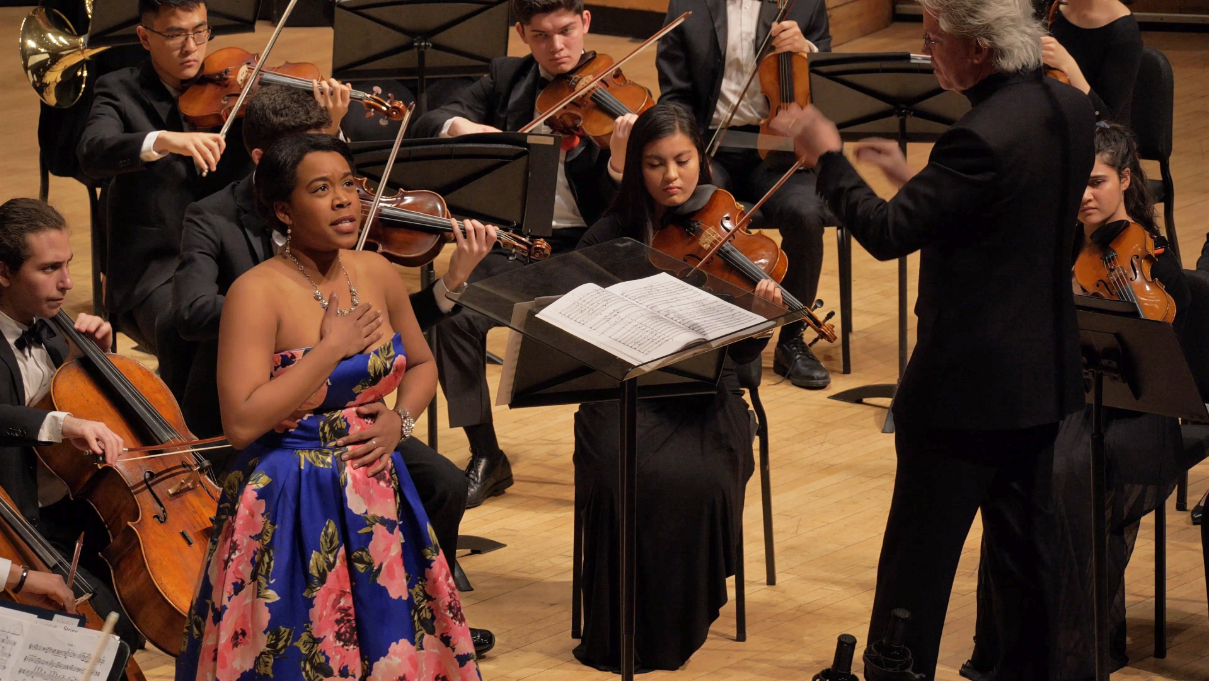Barber - Knoxville: Summer of 1915
March 14, 2019
Soprano Alicia Russell ’18 MMus performs Samuel Barber’s Knoxville: Summer of 1915, Op. 24 with the Northwestern University Chamber Orchestra, conducted by Robert G. Hasty.
American soprano Eleanor Steber commissioned Samuel Barber to compose Knoxville: Summer of 1915 for voice and orchestra. Serge Koussevitzky conducted the premiere on April 9, 1948 by the Boston Symphony Orchestra, with Steber as soloist. Although Barber, occupied with a fellowship at the American Academy in Rome, could not attend the first performance, Koussevitzky reported to him that it was “an outstanding success and made a deep impression on all.” Like Aaron Copland during the same period, Barber generally aimed to make his music accessible to broad audiences, but like Piston, his style was more international than distinctly and consciously American. Thus, Knoxville: Summer of 1915 represents one of his more atypical and American works, due in large part to the subject matter.
Knoxville: Summer of 1915 is a musical setting of a poem by James Agee of the same title, which served as the preface to Agee’s novel A Death in the Family (1948). In the poem, Agee depicts dream-like childhood memories through the eyes of a young boy voiced by the soprano. Barber and Agee’s protagonist relates not a plot, but a nostalgic impression of nighttime in Knoxville with people sitting on porches, nighttime bird calls, and glittering stars. Barber’s work opens with a lyrical section which suddenly transitions into an allegro agitato, characterized by chaotic staccato and pizzicato strings. This middle section fades into a final return of the opening material. Knoxville concludes on a philosophical note as the young narrator remarks, “By some chance, here they are, all on this earth; and who shall ever tell the sorrow of being on this earth, lying, on quilts, on the grass, in a summer evening, among the sounds of the night.” Near the end, the soprano voices the frustration of the boy regarding his elders in ascending leaps in parallel fifths as he complains that no one will tell “[me] who I am.” The last time this is uttered, the soprano voice, in a high, soft, ethereal register, seems to fall into a slumberous state. Beneath the childhood nostalgia which has suffused the work is thus revealed a sense of alienation from the idyllic social scene recalled in such affectionate detail: the narrator can never return to the idyll because he never fully belonged to it in the first place.
